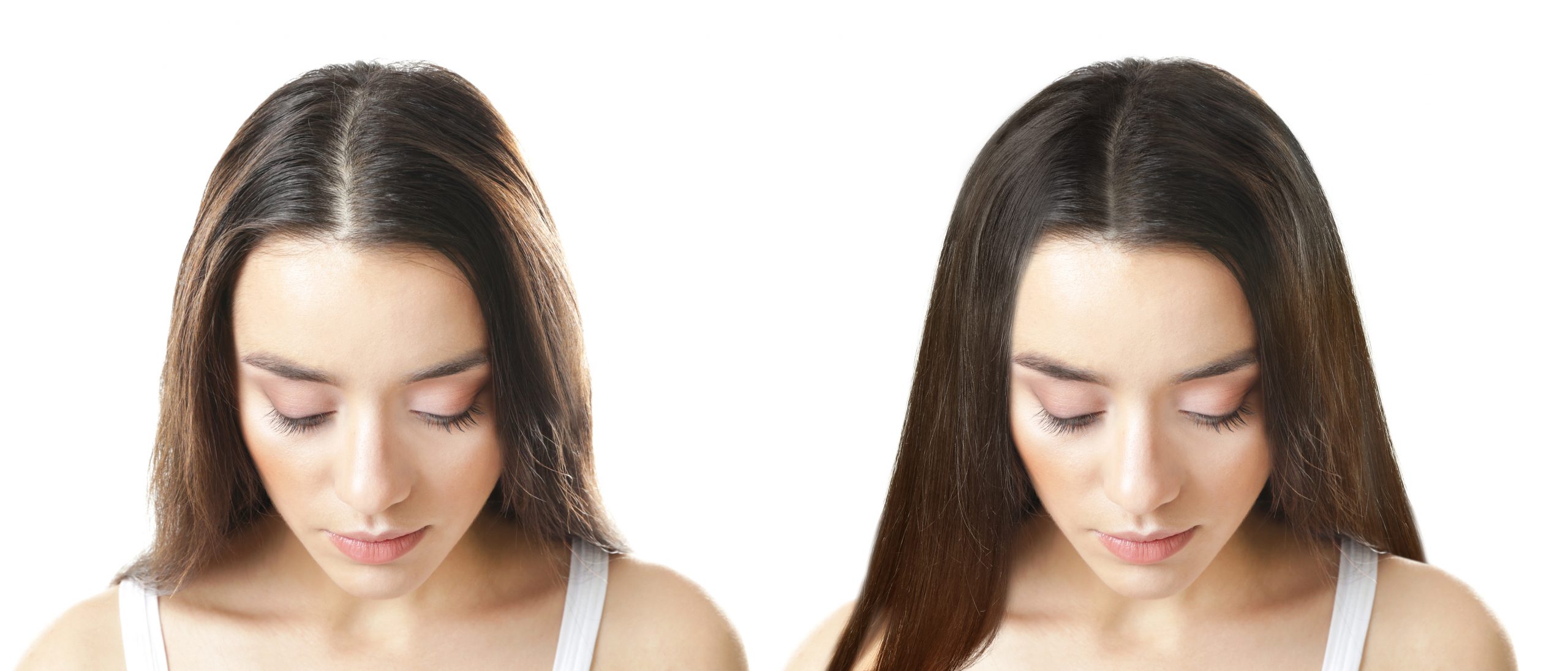Have you ever wondered why some individuals have thick, luscious locks while others struggle with thin or sparse hair? The answer lies, in part, in our genes. Genetics plays a significant role in determining our hair growth patterns, texture, and overall hair health. Understanding the impact of genetics on hair growth can help us appreciate and work with our unique hair characteristics. In this article, we will explore the connection between genetics and hair growth, shedding light on the role of genes in your mane.
- Hair Follicle Structure: The structure of our hair follicles, which determines hair thickness and texture, is largely determined by our genes. Each individual has a specific number and density of hair follicles, as well as the shape and size of these follicles. For instance, individuals with round hair follicles tend to have straight hair, while those with oval or irregularly-shaped follicles may have curly or wavy hair. The inherited shape and size of hair follicles impact how our hair grows and appears.
- Hair Growth Cycles: The growth cycle of hair is a complex process that is also influenced by genetic factors. Hair follicles go through three distinct phases: anagen (growth phase), catagen (transition phase), and telogen (resting phase). The duration of each phase and the rate at which hair cycles through them can vary among individuals due to genetic factors. Some individuals may have shorter anagen phases, resulting in slower hair growth, while others may have longer growth phases and faster hair growth.
- Hair Color and Pigmentation: Genes also play a significant role in determining hair color and pigmentation. The amount and type of melanin (the pigment responsible for hair color) produced by specialized cells in the hair follicles are influenced by genetic factors. Variations in the genes responsible for melanin production can result in different hair colors, such as blonde, brown, black, or red. Additionally, genetic factors can also contribute to the graying of hair as we age.
- Androgen Receptors and Hair Loss: Genetic factors can contribute to the risk of hair loss or androgenetic alopecia. Androgenetic alopecia is the most common form of hair loss, characterized by a gradual thinning of hair, particularly on the crown and temples. It is influenced by a combination of genetic and hormonal factors. The presence of specific genes, particularly those related to androgen receptors, can increase the susceptibility to hair loss in both men and women.
- Hair Density: The density of hair, or the number of individual strands per square inch of the scalp, is also influenced by genetics. Some individuals are genetically predisposed to having a higher density of hair follicles, resulting in thicker and fuller hair. Others may have a lower hair density, leading to a more sparse appearance. Genetic factors determine the maximum potential hair density that an individual can have.
- Response to Hair Care Products: Genetic variations can also influence how our hair responds to different hair care products and treatments. For example, some individuals may have a genetic predisposition to produce more or less sebum, the natural oil that lubricates the hair and scalp. This can affect how often they need to wash their hair or the type of products that work best for them.
- Understanding and Embracing Your Unique Hair: Recognizing the impact of genetics on hair growth can help individuals better understand and embrace their unique hair characteristics. It is important to appreciate that our hair is determined by a combination of genetic and environmental factors. While we cannot change our genetic makeup, we can take steps to nurture and care for our hair by following a healthy hair care routine, adopting good nutrition practices, and seeking professional advice when needed.





